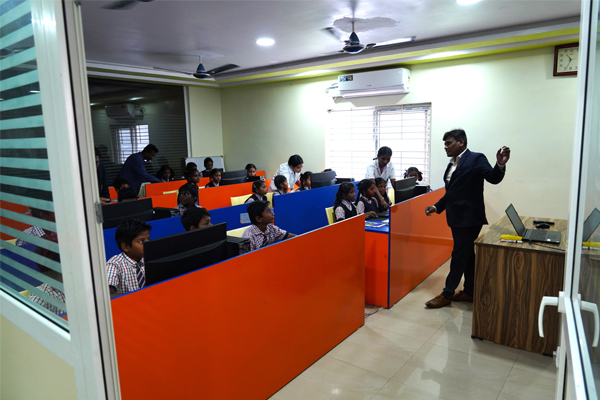A report made by the National Institute of Multimedia Education in Japan, proved that an increase in the use of ICT in education with integrating technology to the curriculum has a significant and positive impact on students’ achievements. The results specifically showed that the students who are continuously exposed to technology through education has better ‘knowledge’, presentation skills, innovative capabilities, and are ready to take more efforts into learning as compared to their counterparts.
ICT is an extended term for Information technology which is a technological source to make information available at the right time, right place in the right form to the right user. Earlier, one had to wait for the newspapers to get the information across the world. Now with the smarter technology, information can be accessed from anywhere using smartphones and gadgets. All this is made possible with the help of Information and Communication Technology. Information technology has been influencing our lives in the recent years in the fields of education, healthcare, and business. Going an extra mile, Information and communication technology in schools has had a major impact.
Computer-based learning: Computer-based learning is one of the modules of school communication tool that helps students to enhance their learning skills through computer aided education. It imparts computer knowledge in students and enables them to obtain large amounts of information from various websites. After two decades of introducing computers to schools, education has been revolutionized ever since then. It reduces time spent on mechanical tasks such as rewriting, producing graphs and increases the scope of searching. It not only helps in finding information but also in organizing information making it easier to share with others.
Classroom Learning: With the introduction of ICT in education, classroom learning is one attribute that makes learning experiential and experimental to students. Students can listen to the instructor or teacher, receive visual cues through PowerPoint images, handouts or whiteboard lists and participate actively. This helps in immediate interaction and students have opportunities to ask questions and participate in live discussions. This school communication software module further benefits in building and maintaining personal and professional relationships as classrooms offer greater personal contact with other students and teachers.
Video conferencing: This is yet another medium of communication wherein students can communicate with other students or instructors online. It enables students to become active participants in their own learning. Video Conferencing is a powerful communication tool that has the potential to change the way we deliver information to students. It is just one of the today’s integrative technologies that empower students to prepare for a better future.


